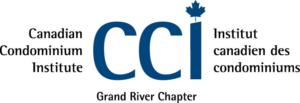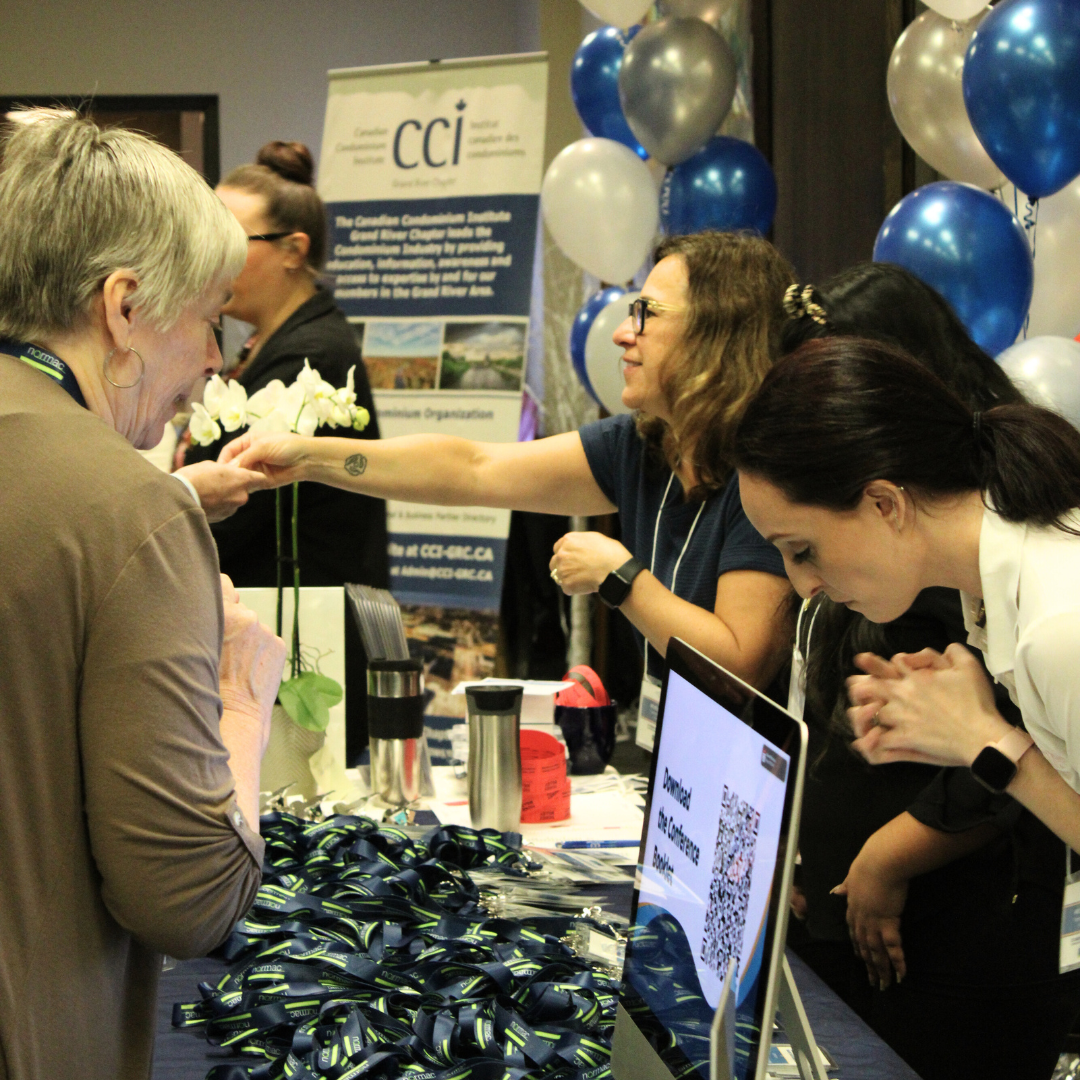Difficult Annual General Meetings:
For boards, owners, and property managers, annual general meeting season can be a stressful time. The Condominium Act, 1998 (the “Act”) requires that a board shall hold a general meeting of the owners within six (6) months of the end of the corporation’s fiscal year. If your condominium’s fiscal year matches the calendar year, the months leading up to June can be hectic. Complying with the notice requirements of the Act, preparing the prescribed forms, and coordinating with auditors, lawyers, and engineers to ensure all necessary material is ready are just a few of the boxes on any annual general meeting (“AGM”) checklist. Then comes the AGM itself and the unique challenges that face each condominium. Most AGMs run smoothly and without incident, others not so much. Difficulties can arise for a myriad of reasons such as disputes over proxies, the financial health of the condominium, who will conduct the meeting, differing opinions over governance and priorities, and the clash of strong personalities, to name a few.
While each condominium is unique, some difficulties can be predicted and overcome in advance; others cannot. The Ontario Superior Court has addressed situations that arise at AGMs and can provide guidance to condominium boards, owners, and property managers. Such situations include who should chair the meeting, how to assess proxies, and what to do when someone disrupts the meeting.
Chairing the AGM:
The Act is silent on who should chair the AGM and what the duties of the chair are or should be. Often this role falls to the president of the board of directors as indicated in a condominium by-law. Quorum of a board of directors may also appoint another to act as chair, such as the corporation’s lawyer or property manager. In addition, many condominium management services agreements contain provisions that the property manager be available to chair the AGM. Ultimately, the decision on who should chair the AGM falls upon the board of directors, as elected by the ownership at large, and in accordance with the board’s duties to manage the

affairs of the condominium, as set out in section 17 of the Act.
When determining who should chair the AGM, it is first important to note what that role entails. As the Act does not provide guidance or a list of duties and instructions, the Court has turned to the common law and general principles. The Superior Court in York Condominium Corporation No. 42 v. Gosal, 2014 ONMSC 2035, set out the basic duties of a chair. While not an exhaustive list, the Court found that the role of the chair of a condominium meeting is:
- To enforce the rules of order;
- To appoint and instruct scrutineers; and,
- To determine the validity of matters relating to the meeting that may arise (such as the validity of proxies and the results of elections).
In undertaking these duties the chair must act in good faith, in accordance with relevant law, and on reasonable grounds. Provided a chair conducts a meeting in conformity with these principles, decisions made by the chair at the meeting are final and binding (unless reversed by the Court). Once the meeting is over, the authority of the chair is also over. The role and powers of a chair are only valid at the meeting itself; that role is not that of a condominium director, which exists before and, subsequently, after the AGM. The chair is a distinct role.
When determining who the chair should be, “neutrality” is also a consideration to take into account. The Court discussed this aspect of owners’ meetings in Jasper Developments Corp. v. York Condominium Corporation No. 82, 2022 ONSC 1903. The Court in this case stated that there is no doubt that it is always appropriate to have a neutral chair, however “appropriate” and “mandatory” are not the same. If a chair is not totally disinterested, then the chair leaves themselves open to criticism and a risk of complaint over impropriety. However, even if the chair is not disinterested, that chair may still fulfil their duties by making rulings in accordance with the law. For example, a chair may be interested in the outcome of a particular vote, but if the voting results are clear, any alleged breach is inconsequential. Therefore, while a neutral chair is not mandatory, it is encouraged.
At most AGMs it is commonplace, and indeed appropriate, that the board president or property manager chair the meeting. This can be more nuanced when the AGM may be a “difficult” one. Perhaps the board president is up for election and there are staunch candidates against, or there is much debate amongst the owners over previous board decisions or upcoming expensive projects. In circumstances such as these, boards and property managers may wish to consider an alternate chair; one which can undertake the duties required by the Court, has knowledge of the legal requirements of the Act, and can act as a neutral party. As the role of a chair is separate and distinct from that of a director and is only valid for the duration of the meeting itself, a “professional” or “alternate” chair may serve to make a meeting run smoother, keep the meeting on track (regardless of result), and provide confidence to owners that a disinterested party is overseeing the voting.
Where it is known beforehand that a meeting may be contentious, appointing a neutral chair (and one with knowledge of the Act) can, more often than not, assist in easing tensions and solving problems before they arise.
Conducting the Meeting:
In a democracy, elections can be a personality contest with heated opinions on all sides. Condominiums are no different. Candidates dispute various decisions made by past or current board members, win allies and supporters, and likewise lose allies to competing candidates. It is against this backdrop that issues can arise at AGMs, particularly with respect to the treatment of proxies and the election of directors. There is temptation for directors and managers to form opinions on certain candidates, seek to ensure certain candidates do not get elected, lose sight of the provisions of the Act, and the role of a meeting chair.
In Gangoo, et al. v. Toronto Standard Condominium Corporation No. 1737, 2023 ONSC 260, the Court was presented with a situation where the applicants (candidates to the board) alleged that the elections which took place over two (2) AGMs were conducted in an unfair and oppressive manner. The condominium took the position that the applicants were simply unwilling to accept they lost the election. In making its decision, the Court assessed the actions of board members and property managers throughout the process.

The applicant in this case, dissatisfied with the condominium’s treatment of their noise complaints and other issues, decided to run for the board. When the applicant completed the candidate disclosure form and provided such to the property manager, the applicant was told that they could not solicit proxies, as such was only available to current board members. The applicant subsequently lost the election. Following the election, the applicant sought to requisition a meeting. In response, the then board president posted a notice to all owners that the board did not authorize anyone to seek signatures, that if anyone approached a unit door to inform management, and that such was a nuisance. These events set the stage for the next AGM.
Prior to the subsequent AGM, the applicants presented the property manager with proxies obtained with the aim of ascertaining that the proxies were filled out correctly and would be accepted at the AGM. The property manager informed that the proxies were “fine”. The applicants then brought their proxies to the AGM (65 of them) and provided them to the manager at the head table who was collecting proxies. The Board president (the one which sent the notices referenced above) was to chair the meeting. Shortly before the meeting began, the manager informed the applicant that the proxies were deficient, that such would not be counted, and refused to provide them back to the applicant to be corrected. The chair of the meeting then refused to rule on the validity of the proxies in question.
This was not the end of the matter. At the AGM, when the candidates were asked the prescribed disclosure questions, the manager took over the role of chair, and proceeded to ask the applicant questions which were not prescribed by the Act, specifically with a view to requiring the applicant to disclose they had obtained a lawyer. The result of such, in the applicant’s position, was to make the applicant look like a troublemaker and hurt their chance of election. The Court ultimately found that the conduct of the AGM was unfairly prejudicial and unfairly disregarded the interests of the applicant and therefore oppressive conduct within the meaning of section 135 of the Act.
This case serves as guidance for difficult AGMs. While there may be differing personalities and conflicts between candidates, it is the role of the condominium to conduct elections in accordance with the Act, and in a manner which treats all candidates equitably. Difficult situations and AGMs can be eased by following proper procedures and, where the interests of competing parties vary, ensuring a neutral chair is in place to oversee the process.

The Extreme Situations:
Not all difficult situations which arise at AGMs can be adequately addressed by the chair, no matter how neutral, or by well-planned out procedures. While rare, certain situations can lead to threats, harassment, and even violence at meetings. There have been a number of cases whereby an individual has disrupted an AGM in a harassing and intimidating fashion. In Toronto Standard Condominium Corporation No. 2395 v. Wong, 2016 ONSC 800, a displeased owner disrupted the AGM, causing a disturbance by bringing a camera and shoving the camera in other owners’ faces. When asked to cease, the owner grabbed condominium personnel by the arm to turn them around in an attempt to take photos of them. In Toronto Standard Condominium Corporation No. 1899 v. Devlin, 2024 ONSC 2063, an owner made violent threats against others, banged on doors, verbally berated condominium staff, and made racist and discriminatory comments.
Harassing, intimidating, and threatening conduct has, in these cases and others, been found to be a dangerous activity within the meaning of section 117(1) of the Act. The Act defines such behaviour as to likely injure a person and the Court has extended such to non-physical harm. This type of behaviour, no matter how “justified” such may be in the eyes of the individual conducting such, is not acceptable and is prohibited by the Act. Condominium employees and contractors, such as property managers, are also entitled to a safe and harassment-free work environment pursuant to the Occupational Health and Safety Act.
These types of incidents at AGMs may not always be able to be predicted. If there is indication before a meeting that such behaviour can be expected, condominium boards and managers should consider retaining security at meetings. If dangerous activities occur unexpectedly at a meeting, no hesitation should be made to call the appropriate authorities if de-escalation efforts are not appropriate. Condominiums have a duty to ensure that the owners and the agents of the condominium are safe generally; the AGM is no different.

Communication:
While there is not considerable caselaw on this next issue, the most common cause of “difficult” AGMs (in this writer’s opinion) is no, limited, or poor communication between boards and owners in the time leading up to meetings. The AGM can be the only time in the year that many owners interact with their condominiums. For some, it is the only, and first, time they are hearing about issues which may have a governance or financial impact.
For example, there may be upcoming repairs to the common elements which are expected to exceed budget, a condominium may be considering a borrowing by-law, or new rules may be coming into effect which restrict the use of the units or common elements. If an AGM is the first time some, or many, owners are hearing about such issues it can cause shock or anger and lead to a disruptive meeting. Such can also lead to frustration over an alleged lack of transparency in how board decisions are made and why.
While the Act mandates certain notices be sent to owners at specific times and with specific information, and requires an owners’ meeting every year, it can be, and often is, a great idea to communicate with owners more frequently, providing periodic updates to ongoing issues. Monthly or quarterly newsletters can help keep owners abreast of ongoing projections, and townhall meetings, outside of the AGM, can inform owners of major happenings before formal decisions are made.
This is, of course, easier said than done. Board members are volunteers and dedicate their scarce time to condominium business after already putting in a full day’s work. Managers are also stretched for time as the requirements of the Act and overseeing the day-to-day management of condominiums becomes increasingly more complex. There is little time remaining for drafting newsletters. There are ways this may be overcome. One board member can be tasked with drafting the newsletter once a quarter, on a rotating basis, distributing the burden. There are, perhaps, an infinite number of creative ways communication can be improved from a board to owner level. More information and education on how condominiums function and how decisions are made, outside of the AGM, can lead to smoother AGMs.
In short, condominiums are as unique as the owners that live in them and the problems and difficult situations that will arise will be diverse. There is no cure-all or one solution to all problems. Chairing and conducting an AGM can be trying, however, the best way to conduct a difficult meeting to do take the steps we can, before the meeting, to ensure the “difficulties” are addressed, communicate those difficulties beforehand, and treat everyone fairly and equitably. There will always be a situation which will have to be dealt with at the meeting, on an ad hoc basis, but many of the common issues which make AGMs “difficult” can be addressed in advance and meetings can run smoother with effective prior communication.

Christopher Mendes,
Lawyer,
SV Law,
Explore our Previous Blogs.
































 with the
with the





















